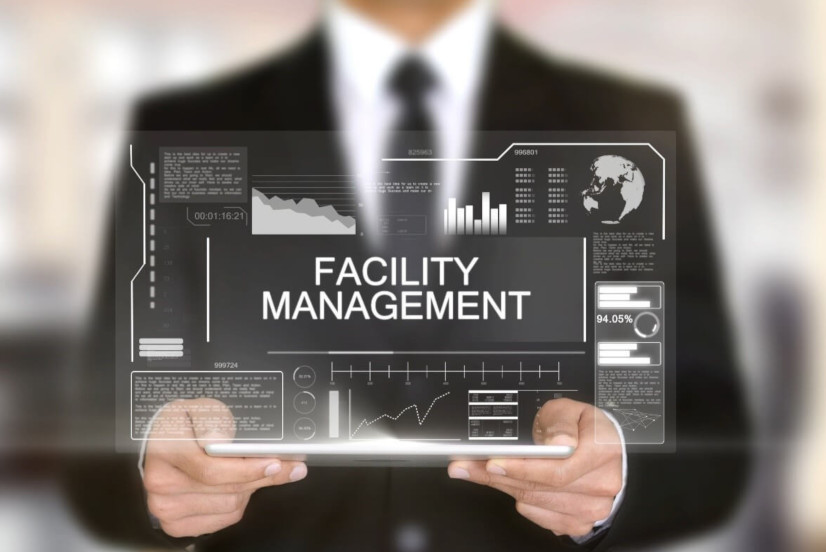Total Facility Management Explained: A Guide for Business Owners
Total Facility Management Explained: A Guide for Business Owners
Blog Article
Why Total Facility Management Is Crucial for Organization Success
Total Facility Management (TFM) serves as a cornerstone for service success by integrating diverse functional facets such as upkeep, room usage, and security steps. This combination not only improves performance but additionally aligns facility management with overarching organizational objectives. As services browse an affordable landscape, understanding the complex advantages of TFM can be essential in driving price performance and boosting employee efficiency. Nonetheless, the ramifications of taking on TFM expand far beyond instant operational gains, raising crucial questions regarding its lasting effect on organizational durability and competition - Total Facility Management. What exists underneath this necessary structure?
Recognizing Total Facility Management
Total Facility Management (TFM) encompasses a thorough technique to handling a company's buildings and connected services to ensure optimal capability, security, and efficiency. TFM incorporates different self-controls, including maintenance, operations, room management, and safety and security procedures, to develop a natural structure that sustains a company's core objectives.
At its core, TFM intends to simplify the processes involved in facility management, reducing redundancies and enhancing solution distribution. This method entails the coordination of activities associated to home management, such as repair work, cleansing, and power management, to cultivate a productive setting for employees and stakeholders alike. TFM additionally emphasizes the relevance of carrying out finest methods and cutting-edge innovations to boost service quality and minimize operational prices.
By lining up facility management activities with business objectives, TFM improves total performance while making certain conformity with health, security, and ecological policies. Therefore, TFM offers not just as a logistical feature yet also as a tactical possession, adding to an organization's long-lasting sustainability and growth.
Key Benefits of TFM
Leveraging a detailed strategy, organizations that carry out Total Facility Management (TFM) unlock a myriad of advantages that add to general organization success. One of the key advantages of TFM is the enhancement of operational effectiveness. By settling facility services under a unified management structure, companies can improve procedures, minimize redundancies, and enhance communication throughout departments.
Additionally, TFM advertises a proactive upkeep strategy, which minimizes downtime and prolongs the life expectancy of facilitiess and devices (Total Facility Management). This proactive technique not just enhances efficiency but also cultivates a more secure working atmosphere, inevitably leading to higher worker contentment and retention rates
Furthermore, TFM facilitates better source allowance by supplying insights into facility performance metrics. Organizations can recognize locations for improvement, allowing them to make informed choices that line up with their calculated goals.
TFM and Expense Efficiency
Achieving expense effectiveness is a fundamental objective for organizations, and Total Facility Management (TFM) plays a critical role in this undertaking - Total Facility Management. By integrating numerous facility solutions under a single management framework, TFM enables companies to improve operations and lower redundancies. This alternative approach causes substantial cost savings, as it eliminates the need for several vendors and streamlines purchase procedures
Additionally, TFM promotes aggressive upkeep methods, which minimize the threat of pricey repair services and downtime. By prioritizing safety nets, companies can extend the life-span of their assets and minimize unanticipated expenditures. Additionally, TFM integrates power management methods, which can dramatically cut energy expenses with effective resource usage.
The centralization of information and analytics within TFM permits companies to make enlightened monetary choices. By determining fads and areas for renovation, TFM allows tailored approaches that further improve price management. The scalability of TFM services guarantees that as organizations grow, their facility management methods remain reliable and straightened with financial objectives.
Enhancing Employee Performance
A well-managed facility can significantly boost employee productivity by developing a favorable job atmosphere. Reliable Total Facility Management (TFM) makes certain that all facets of the office-- from lighting and temperature level to tidiness and safety and security-- are enhanced. When workers run in a space that is comfy and properly maintained, they are most likely to concentrate on their jobs, causing greater output and task fulfillment.
Furthermore, TFM can boost collaboration via the tactical layout of common areas, motivating synergy and innovation. By check my reference buying the ideal resources and technology, companies can assist in seamless interaction and enhance process, even more boosting efficiency. Regular maintenance and timely reactions to facility issues prevent interruptions that might or else impede performance.
Furthermore, a healthy and safe work setting, supported by TFM methods, minimizes absenteeism and promotes wellness, directly correlating with enhanced productivity degrees. Eventually, focusing on facility management is a financial investment not only in physical properties yet additionally in the labor force itself. By promoting a setting that sustains worker needs and preferences, organizations can cultivate a much more involved and reliable workforce, driving overall success and affordable benefit.

Future Trends in TFM
Embracing technological advancements is readied to improve the landscape of Total Facility Management (TFM) in the coming years. As the need for performance and sustainability increases, TFM will significantly adopt wise building technologies, incorporating Web of Things (IoT) devices to keep track of read what he said and take care of facility procedures in real-time. This change will enable positive upkeep, dramatically decreasing operational prices and boosting service shipment.

Sustainability stays an essential emphasis, with TFM professionals anticipated to prioritize eco-friendly methods. This includes making use of renewable energy resources and optimizing waste management systems to minimize the carbon footprint of facilitiess.
Remote management capabilities will also be increased, enabling facility supervisors to look after procedures from virtually anywhere. This flexibility will certainly come to be vital as organizations adapt to hybrid work models. In summary, the future of TFM is positioned for transformation with innovation, sustainability, and improved functional methods, ensuring services stay competitive in an evolving landscape.
Conclusion
By integrating numerous operational features, TFM improves efficiency and lines up facility management with business purposes. As companies increasingly take on lasting methods and cutting-edge innovations, the relevance of TFM will proceed to grow, making certain long-term functional effectiveness and competition in a progressing marketplace.

Report this page